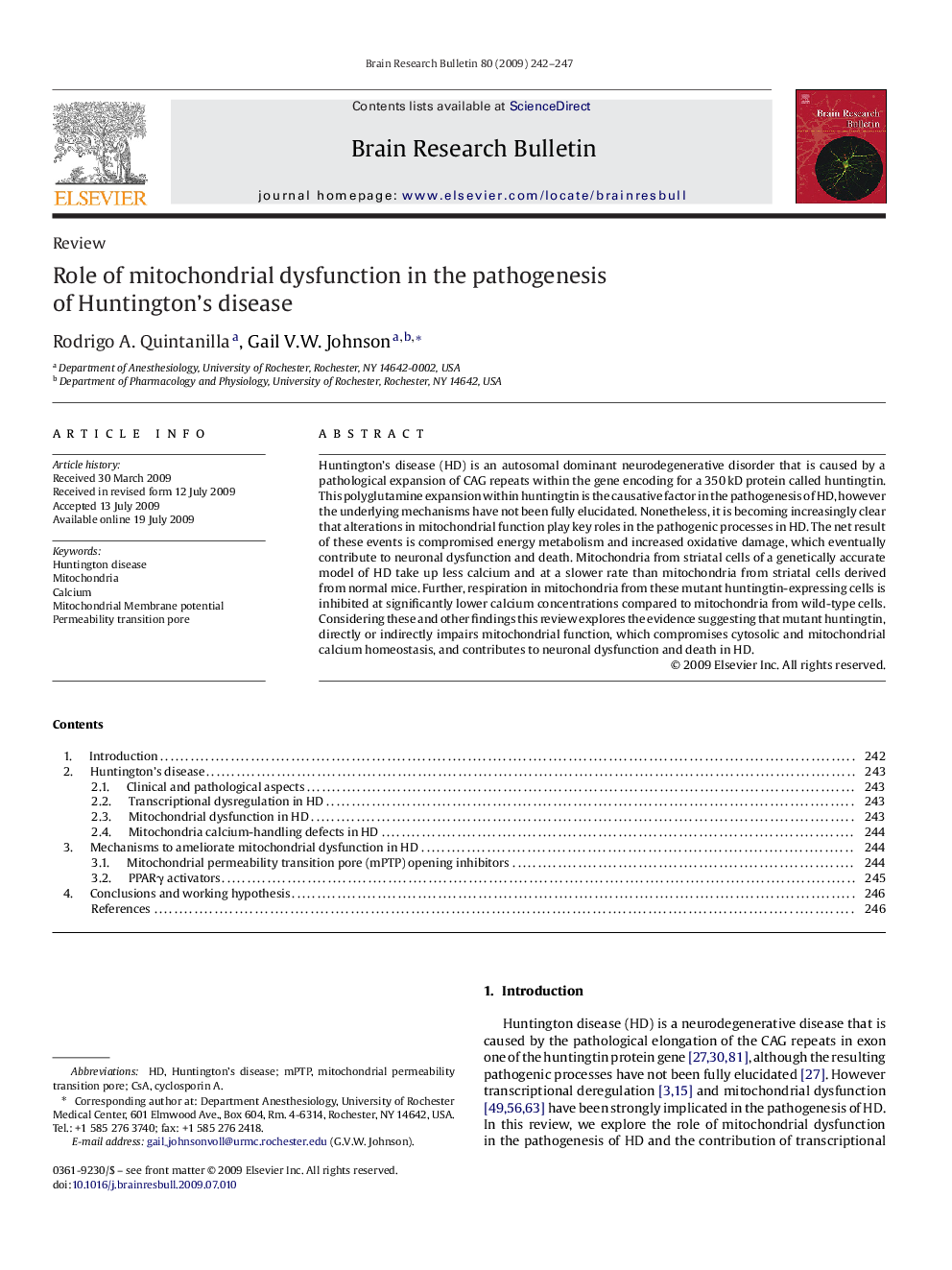| کد مقاله | کد نشریه | سال انتشار | مقاله انگلیسی | نسخه تمام متن |
|---|---|---|---|---|
| 4319468 | 1613286 | 2009 | 6 صفحه PDF | دانلود رایگان |

Huntington's disease (HD) is an autosomal dominant neurodegenerative disorder that is caused by a pathological expansion of CAG repeats within the gene encoding for a 350 kD protein called huntingtin. This polyglutamine expansion within huntingtin is the causative factor in the pathogenesis of HD, however the underlying mechanisms have not been fully elucidated. Nonetheless, it is becoming increasingly clear that alterations in mitochondrial function play key roles in the pathogenic processes in HD. The net result of these events is compromised energy metabolism and increased oxidative damage, which eventually contribute to neuronal dysfunction and death. Mitochondria from striatal cells of a genetically accurate model of HD take up less calcium and at a slower rate than mitochondria from striatal cells derived from normal mice. Further, respiration in mitochondria from these mutant huntingtin-expressing cells is inhibited at significantly lower calcium concentrations compared to mitochondria from wild-type cells. Considering these and other findings this review explores the evidence suggesting that mutant huntingtin, directly or indirectly impairs mitochondrial function, which compromises cytosolic and mitochondrial calcium homeostasis, and contributes to neuronal dysfunction and death in HD.
Journal: Brain Research Bulletin - Volume 80, Issues 4–5, 28 October 2009, Pages 242–247